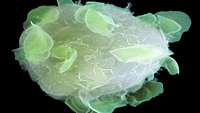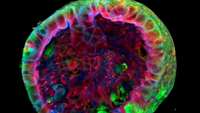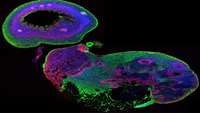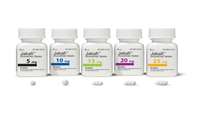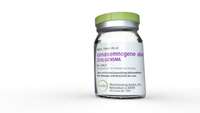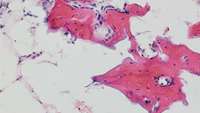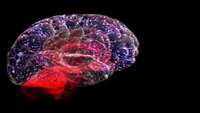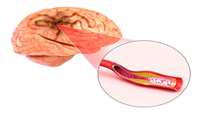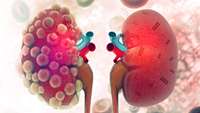Blood stem cells produced in vast quantities in the lab
Researchers have managed to grow large numbers of blood-forming stem cells in the lab using a surprisingly simple ingredient found in glue. And when injected into mice, the cells started producing key components of blood.
Researchers develop mini kidneys from urine cells
Scientists from Utrecht University, University Medical Center Utrecht and Hubrecht Institute have successfully created kidney organoids from urine cells. This could lead to a wide range of new treatments that are less onerous for kidney patients. The results of the research will be published in Nature Biotechnology today.
OP07 Analysing intestinal organoids in a multi-omics, systems biology framework to investigate functional processes affected in Crohn’s disease due to autophagy impairment
Autophagy is a highly conserved catabolic pathway that eliminates damaged organelles, invading pathogens and specifically degrades proteins. Mutation in autophagy genes and deregulated autophagy are related to various human diseases including Crohn’s disease (CD) where autophagy impairment was shown to affect Paneth cells.
FDA approves Jakafi for acute graft-versus-host disease
The FDA approved ruxolitinib for the treatment of steroid-refractory acute graft-versus-host disease among adults and children aged 12 years and older.
At $2.1 Million, New Gene Therapy Is The Most Expensive Drug Ever
The federal Food and Drug Administration has approved a gene therapy for a rare childhood disorder that is now the most expensive drug on the market. It costs $2.125 million per patient.
Researchers define cells used in bone repair
Research led by Johns Hopkins investigators has uncovered the roles of two types of cells found in the vessel walls of fat tissue and described how these cells may help speed bone repair.
Inflammation signals induce dormancy in aging brain stem cells
In old age, the amount of stem cells in the brains of mice decreases drastically. The remaining ones protect themselves from completely vanishing by entering a state of dormancy, scientists from the German Cancer Research Center (DKFZ) have now reported in Cell.
Scott Gottlieb returns to NEA – this time with some valuable regulatory experience under his belt
One of the largest venture capital firms in the world is adding an enviable member to its healthcare investment team: the man who just stepped down as commissioner of the Food and Drug Administration.
Long-Term Study Shows Endothelial Progenitor Cells Are Safe for Treating Stroke Patients
A new study recently published in STEM CELLS Translational Medicine demonstrates the long-term safety of laboratory-expanded endothelial progenitor cells for treating ischemic stroke. This could be good news for the 15 million people who, according to to the World Stroke Organization, suffer from this dangerous condition each year.
Kidney-Resident Macrophages — a role for Healing During Acute Kidney Injury
During development in the womb, immune cells called macrophages go to the kidneys and remain there for life. Understanding the possible healing role for these macrophages after kidney damage may be crucial to helping treat patients who suffer acute kidney injury.


